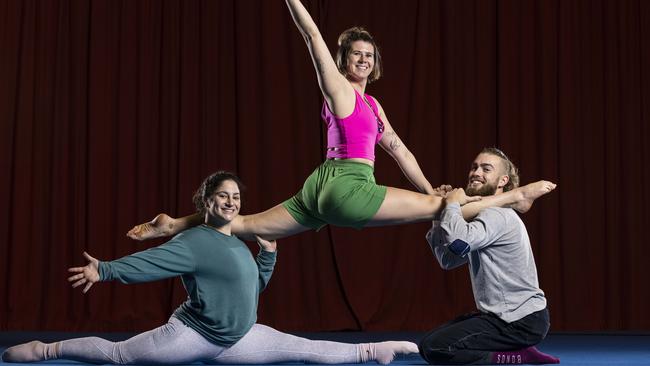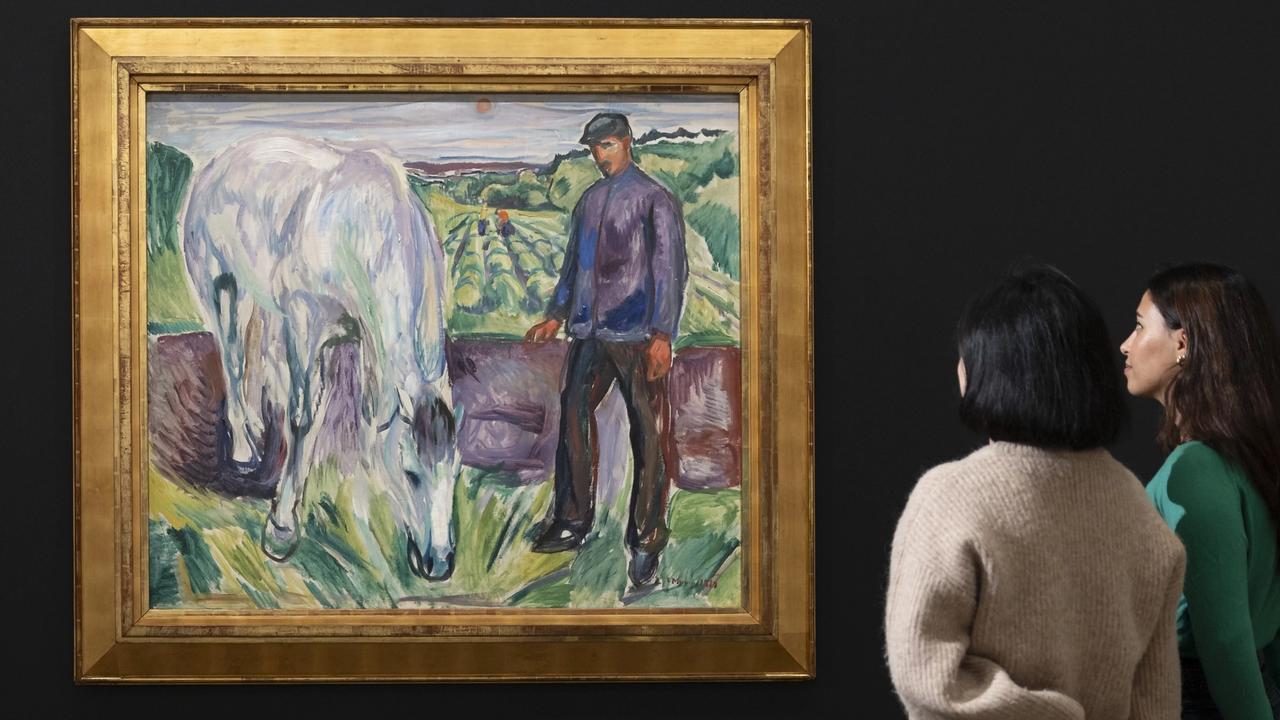Circus Oz walks tightrope of survival
The national circus company is reinventing itself as it awaits the outcome of a crucial funding review.

National arts company Circus Oz is walking a tightrope of survival as funding partners warn it will lose its $2.6m in federal and state subsidies unless it can prove its value to a new arts-funding framework.
The circus, founded in 1977, has wowed audiences around the world with its spectacular big top, animal-free shows and boisterous, skilful performers.
But executive director Penny Miles says Circus Oz has not kept pace with other innovative circus troupes and it no longer meets audience expectations of diversity among its performers.
Earlier this year, the company was warned that recurrent government grants would end in December unless funding partners were satisfied with a revised strategy and business plan.
Miles says uncertainty over the federal and state funding, which was worth $2.6m last year, has put Circus Oz on a “teeterboard”.
“It’s a significant investment in this company and (losing) it would definitely complicate and change the nature of what we could and should be,” she says.
As part of its revised business model, Circus Oz is launching an “incubator” program and is inviting collaboration from other artists and groups.
This week, a company called Get Well Circus – which is led by artists with chronic pain, illness or disability – is working on a new show at Circus Oz’s Collingwood headquarters in Melbourne. Circus Oz is also offering paid fellowships, of $40,000 each, for circus artists to develop their work, and an associate artist program to encourage experimentation across different disciplines.
“Circus Oz needs this,” Miles says. “We have had a long history of being about our own artists. To make us more relevant, we need to embrace the whole range of dynamic circus that’s out there, and start thinking about what the next generation will look like. This is a provocation to us; we want to be incredibly open to the whole spectrum of circus arts, from theatrical work to physical dance.”
The company is also seeking an artistic leader, after the departure of Rob Tannion and a decision early last year to engage guest directors in a festival-style model.
The funding challenges are due to the new National Performing Arts Partnership Framework, agreed by federal and state cultural ministers, that has introduced greater competition among major arts companies for government support.
Eight new companies were admitted to the NPAP framework earlier this month, and the funding criteria also allow for underperforming companies to be removed. Circus Oz received notice in January that its application for funding under the framework was suspended, pending a review.
“We have welcomed the changes to the framework,” Miles says. “It has meant that companies like us have had to think about what it means to be competitively assessed, what is the obligation of having that investment.”
Acclaimed contemporary circus company Circa, which is based in Brisbane under the artistic direction of Yaron Lifschitz, was added to the funding framework in 2019.
Miles says Circus Oz and Circa are “complementary” and insists there is room both for Circa’s style of acrobatic theatre as well as the “gutsy and raw” performances of Circus Oz.
“We are in danger of this sector being imbalanced, and that is where Circus Oz needs to step up and take on the other elements of circus,” she says. “I don’t think we’re in competition (with Circa), we are complementary.
“We should be the other bookend of everything circus can be. We need to support that (theatrical) side of the artmaking and audience engagement.”
Circus Oz is in a state of “positive vulnerability” as it awaits the outcome of the funding review, due by September.
“There’s heightened awareness,” Miles says. “We are not moving through this space without understanding where we’ve been and where we need to go.
“It’s huge to turn a company around that’s 43 years old. But part of our DNA is embracing this innovation and risk. Circus is all about risk.
“This is an incredibly risky moment, absolutely, but I think we’ve got a lot of confidence and self-awareness of where we’re going.”



To join the conversation, please log in. Don't have an account? Register
Join the conversation, you are commenting as Logout